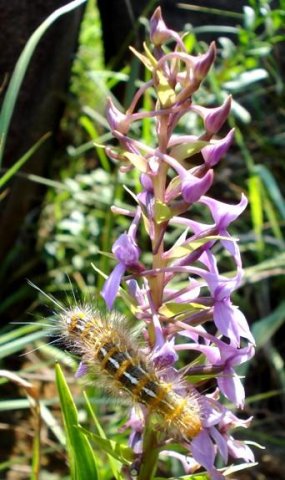Brownleea graminicola eaten rather than pollinated

Author: Ivan Lätti
Photographer: Judd Kirkel Welwitch
This hairy visitor to Brownleea graminicola may well eat more than the plant species ever intended to offer visitors. Nectar (and surplus pollen) are produced to feed itinerant pollinators; not corollas, stamens, stigmas and what not.
This has been the long-standing natural trade arrangement entered into by flowering plants, established and continually improved upon through evolution for many millions of years. Sacrificing still useful plant parts to satisfy the hungry of the world is, however, part of the billions of little tragedies occurring daily on earth, as living species eat living species of their choice, barring menu constraints.
Taking its chances in life is the inescapable fate of the individual, whatever its species. Overproduction brings survival for the species by its practicing of safety in numbers, while supplies last.
Consolation required? Your sacrifice of lush young body parts increases the statistical probability that one (or some) of your brothers or sisters will make it to the breeding stage. Thus your life (and death) gain meaning from serving your species.
Nature knows what the greater good is. But get the reproductive arithmetic wrong and a species becomes extinct.

